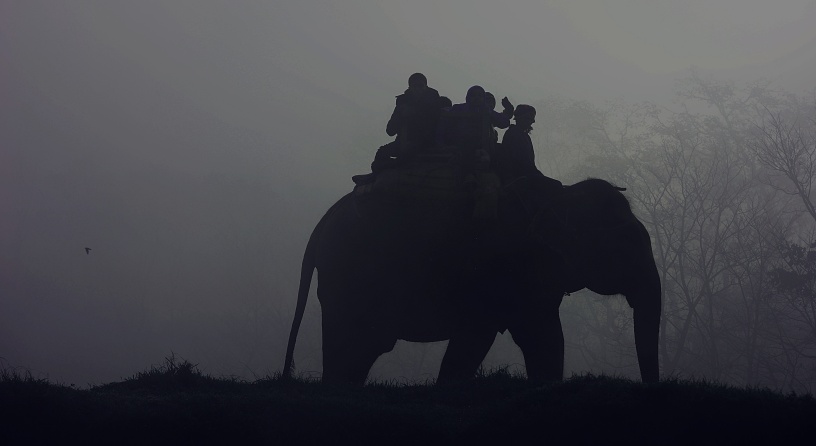Following on from our article a few weeks ago, about ivory and the new UK law prohibiting the sale on ivory objects made after March 1947, a shocking new Hugh Fearnley-Whittingstall documentary from the BBC has shed further light on the £15b trade that’s driving one of earth’s most magnificent animals to the brink of extinction.
If the current rate of poaching continues then african elephants will be extinct by 2025, at the start of the 20th century there were around 10 million but by 1989 there were just 600,000 left. This lead delegates from many countries to ban ivory sales and this even prompted an increase in elephant numbers but a boom in demand from asian markets has once again caused numbers to fall to dangerous levels.
How to tackle the problem of modern-day poaching has caused much controversy and calls for a total ban on the trade of ivory are reaching their loudest levels yet. Following on from the BBC documentary, Fearnley-Whittingstall along with nearly 100 other campaigners including conservationists, politicians and famous public figures such as Joanna Lumley and John Cleese, have written an open letter to the foreign secretary, Boris Johnson.
Below is an excerpt from the letter, published through telegraph.co.uk, which appeals for a total ban on ivory and further effort to reduce demand with a view to ending modern-day poaching.
“Dear Secretaries of State,
We, the undersigned elephant biologists, wildlife conservationists, international wildlife trade experts, Members of Parliament, concerned representatives of the media and the public, call on you and the Government to take the following further and immediate measures to enhance the protection and survival of wild elephants, building on the modest steps that you have taken to date.
- Close all remaining legal loopholes that facilitate the laundering of illegal ivory as ‘antique’ (pre-1947) and pre-Convention (pre-1975), by introducing a total ban on domestic ivory trade. Evidence broadcast tonight by Hugh Fearnley-Whittingstall on the BBC (Saving Africa’s Elephants: Hugh and The Ivory War.), confirms that illegal ivory is being sold using the current exemptions, and that even recently-revised legislation is simply inadequate and does not prevent activities which continue to feed both domestic, European and global ivory markets.
- Provide additional resources, with funding from the Department for International Development, to bring enhanced security to human communities that live alongside wild elephants and whose livelihoods are threatened by poaching, wildlife-related civil unrest, and by human/wildlife conflict.
- Increase our efforts to disrupt the supply routes used by criminal syndicates which ship ivory and other wildlife products from source countries to overseas markets, in line with the work of the Transport Task Force established following the London Summit on Illegal Wildlife Trade in 2014.
- Support demand reduction strategies in destination countries to help ensure that all their citizens are aware of the lethal consequences of buying ivory which fuels the poaching of 30,000 elephants a year.”
Last month, the UK banned sales of post-1947 ivory items without official verification of it’s provenance, however the letter says that the revised legislation is inadequate and that it does not help to reduce demand.
The antiques trade has responded to this new legislation with the British Antiques Dealers’ Association (BADA) launching an ivory object certification system for its members which will provide assurance of ivory objects and their age.
This BADA certificate will feature an image and details of the item and the information will also be held on a central database, the BADA has said that they aim for this to drive out potential for modern-day poaching and help to ensure that ivory objects remain as historical art objects.
Antiques dealers and the industry are shaping up to present further evidence to support the trade of pre-1947 ivory but protestors are equally campaigning against it, arguing that the trade of currently legal ivory provides a cover for the illegal trade.
The debate raises questions such as whether antique items which include ivory elements are directly affecting the demand of buyers of new ivory, particularly from booming asian markets, such as China and Hong Kong.
The debate is sure to rage on and with the conservative party calling for ivory bans in its 2015 manifesto, one would hope that a clear distinct resolution should be forthcoming, especially with the manifesto including statements such as; “continue to lead the world in stopping the poaching that kills thousands of elephants each year” and “press for a total ban on ivory sales” which could not be a clearer statement of intent.
If you’d like to learn more about the ivory trade and how it’s affecting african elephants then you can watch the BBC documentary through the iPlayer now.
